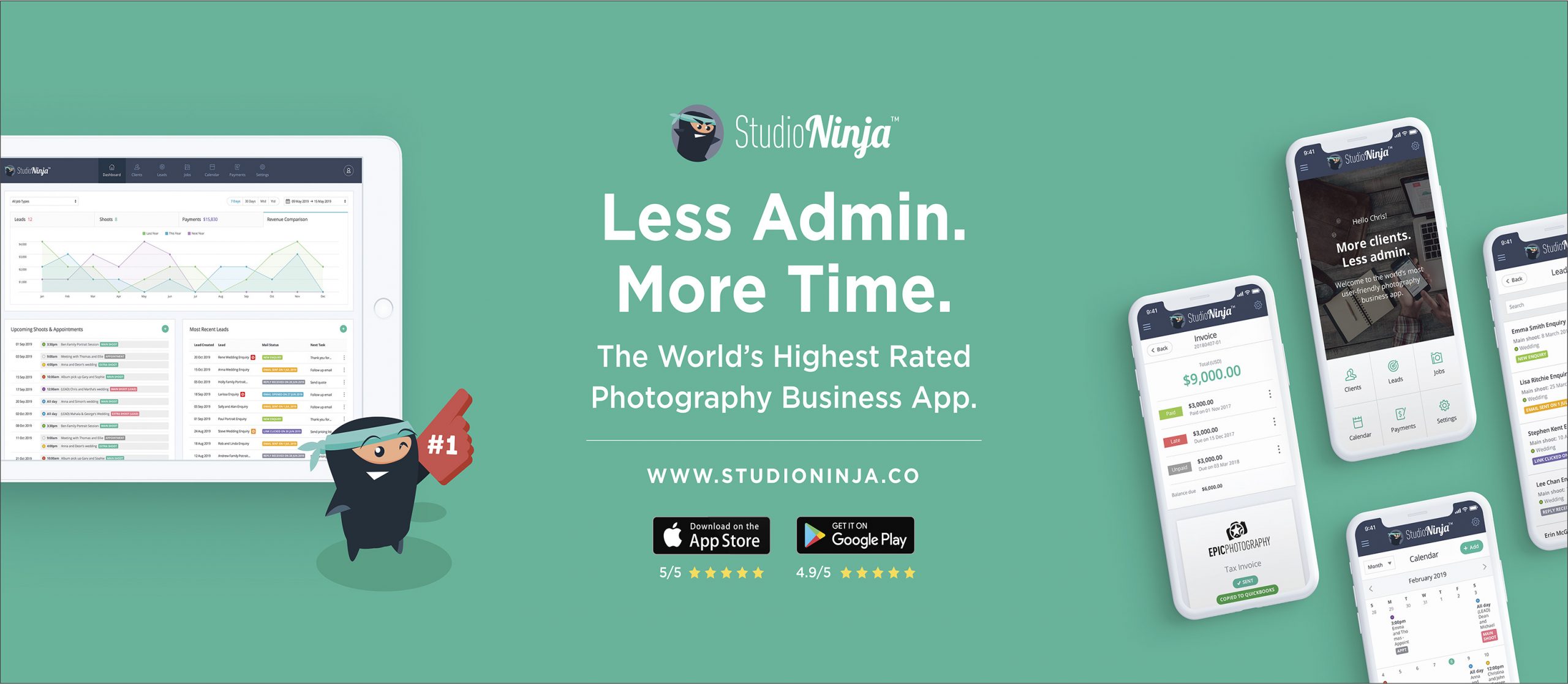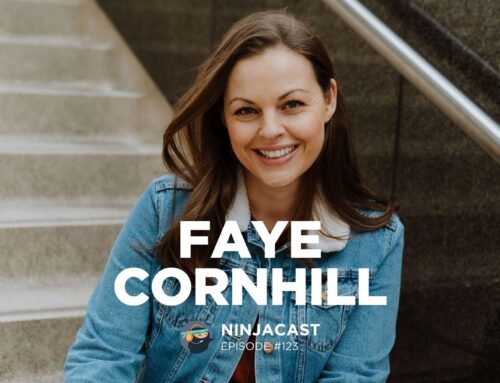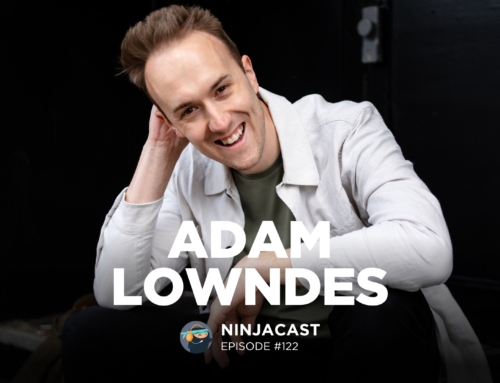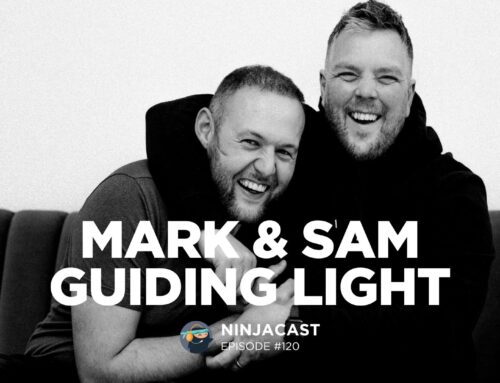064: Hank Paul – Feeling Confident as LGBTQ+ Allies & Top Tips for Genderless Posing
June 10, 2022
“Work for free more. It gives you flexibility to just take on the jobs and the work that you then want to build a business on.”
HANK PAUL
Hey everyone! It’s Sally here, from Studio Ninja. Today’s episode is all about Hank Paul!
Check out some of the biggest points from Hank’s interview below:
What was your experience like in coming out as a queer business owner?
I refer to having two different coming outs. And so one was that personal coming out and that’s the reckoning with my own sexuality and who I let in to know that about me and the journey I went on to let the rest of the world know. And that’s a very personal one and we could have that conversation another day and there’s a lot of trauma and vulnerability involved in that.
But my second coming out is, as you say, it’s like coming out as a queer-owned business. And whilst coming out personally was a long process. Coming out as a queer-owned business was almost an overnight decision for me. And I’d spent a long time building a brand. As a wedding photographer, I’ve built a personal brand. And for a long time, I built that brand around, I guess, like a single set of values and life experiences that I’d had up into that point, which was very tied to my upbringing in the church.
And the way that I viewed weddings and even… Like just down to the kind of clients that I was booking was all really tied in with this single experience of what my life looked like inside the church. Being in the church also then meant it was really hard to reconcile within myself my own sexuality. And I didn’t dare to then touch that within my personal brand of my business. And to my shame, I still think about the queer weddings that I kind of rejected in my early days in my business because I was like, “Well, that’s not compatible with the brand that I’m building.”
And then I think really the pivotal moment for me in my life was here in Australia, in 2017, we had quite a divisive debate around marriage equality and it was very public. And the government at the time asked everyone in the nation if they would like to contribute a vote toward whether or not we would legalize marriage equality. And what ensued was a really harmful campaign that meant that you would be watching. I remember I was watching Survivor on TV, just like innocent little me watching Survivor. And then in the ad break, of course, comes up this ad that’s telling me in my own lounge room where I should feel safest that marriage equality is going to lead to boys in school wearing skirts. And it’s like, “Oh, what’s so wrong with that in the first place?” But it’s that fear campaign that was, I mean, incredibly transphobic specifically.
But that’s kind of the… If that can give you just a sense of the mood or the vibe of society for us here in Australia in 2017. So it’s really tough. And obviously just kind of as a queer person and seeing the hurt toward my community and feeling the hurt toward myself. When we came out the other side, the vote happened and 61% of the people who chose to vote said, “Yes, I support marriage equality.” And then it was legalized pretty quickly after that.
And so once we got through all of that and I thought, “Oh gosh, that really hurt me. And I don’t want a business that can exist in the environment that actually caused the harm for me. And instead I want to build a business that yes, will make me money, but will also have a really positive impact in the world.” And so for me, that’s really about celebrating and affirming all couples regardless of who they are and what they look like. But celebrate their love and their commitment. So I’ve already forgotten your question, but I hope that answers it.

What are the myths about being a LGBTQ+ ally?
So I would say a really common example of where the queer community is pretty tuned in and does this really well, but people who are not part of the queer community often think that’s just for queer people, and that is pronouns. So when I jumped on the pod today, Sally, I introduced my pronouns. For me, that’s a real habit that I’ve developed. And for a lot of people in the queer community, we recognize that by us proactively introducing ourselves with pronouns is a way of signaling, “Hey, I recognize how important it is for other people to be affirmed with their gender identity that they want.”
And so for me, I use he/him pronouns and I want people to see me as a man. It’s not hard because I’m also cisgender. So I’m born… I’m assigned male at birth and I am male, but that’s not the case for everyone. And so it’s harder if you enter a conversation or you meet someone new and you are just kind of letting them assume your gender identity and you are assuming their gender identity. That doesn’t create a safe space for our trans siblings and our non-binary siblings. And so it’s a really great simple thing that we can do incorporating pronouns into meeting new people, putting them in your email signature, putting them in your bio, in your website.
I had someone say to me the other day, “Oh gosh, it’s a bit complicated.” And I was like, “Is it?” Like I just… It’s an extra sentence that I get to say in introduction. I actually don’t think it’s that complicated. And I want to challenge anyone whose mindset is that any level of inclusion is adding layers of complexity. Like sure, there is a lot that we could unpack. But if we start one step at a time, pronouns would be one of the really easy steps that we can start with.
Okay. So again, I just want to… I want to anchor that these myths are things that you might be thinking with really good intention as, “Oh, I don’t need to do any more work to be a better ally.” So the second myth is that having a gay friend automatically makes you a queer ally. So it’s always… You hear this all the time in conversations around like homophobia, but also in terms of like racism. It’s like, “Well, I have a gay friend. I have that one person in my life who I treat them exactly the same as everyone else. And therefore I’m not homophobic because I’ve got a gay friend.” I think that those things are not necessarily… That don’t equate to each other. You can have a gay friend, but also have homophobic views.
In same way that I know here in Australia, there’s a bit of a dialogue happening politically around, well, you can have a wife or you can have a daughter, but you could also be a misogynist. It’s like, it doesn’t forgive you from not having kind of archaic and outdated views about people that’s discriminatory. So I would just challenge you. If you think that you’re a great ally because you’ve got friends in the queer community, firstly, that’s wonderful. I think everyone should have gay friends and queer friends. We are the best type of people to be friends with. But that doesn’t then exclude you from doing further work to proactively show and communicate allyship and advocacy.

If you could add one final piece of advice, something that’s made a difference in your personal life or your business life, what would that piece of advice be?
So my piece of advice is if you don’t believe in yourself, how will anyone else believe in you?
And that is to say… I mean, you could go two ways with that. One is to say, if you don’t believe that your photos are worth, you know what they’re worth, then why would anyone else pay what you’re asking? Why would anyone else buy into your business if you don’t believe it? But then maybe a little bit more woo-woo is if you don’t love yourself and if you’re not really proud of who you are in the journey that you’ve been on, well, why would anyone else love you and be proud of you either? So I think it’s like that self-belief that’s really, really key to, I think, career success, but also just life success.

Thank you!
Thanks again to you all for joining us and a huge thanks to Hank for joining us on the show!
If you have any suggestions, comments or questions about this episode, please be sure to leave them below in the comment section of this post, and if you liked the episode, please share it using the social media buttons you see at the bottom of the post!
That’s it for me this week, I hope you all enjoyed this episode.
See you soon,
Sally

About Hank Paul
Hank Paul (he/him) is a full-time wedding photographer based in Sydney, Australia, specialising in sustainable and inclusive weddings. He is a lover of board games, indoor plants, and all forms of fried potato! He co-hosts the Profit on the Margins Podcast, is the author of the book Queer-Owned, and creator of Queer Wedding Ally Training.





